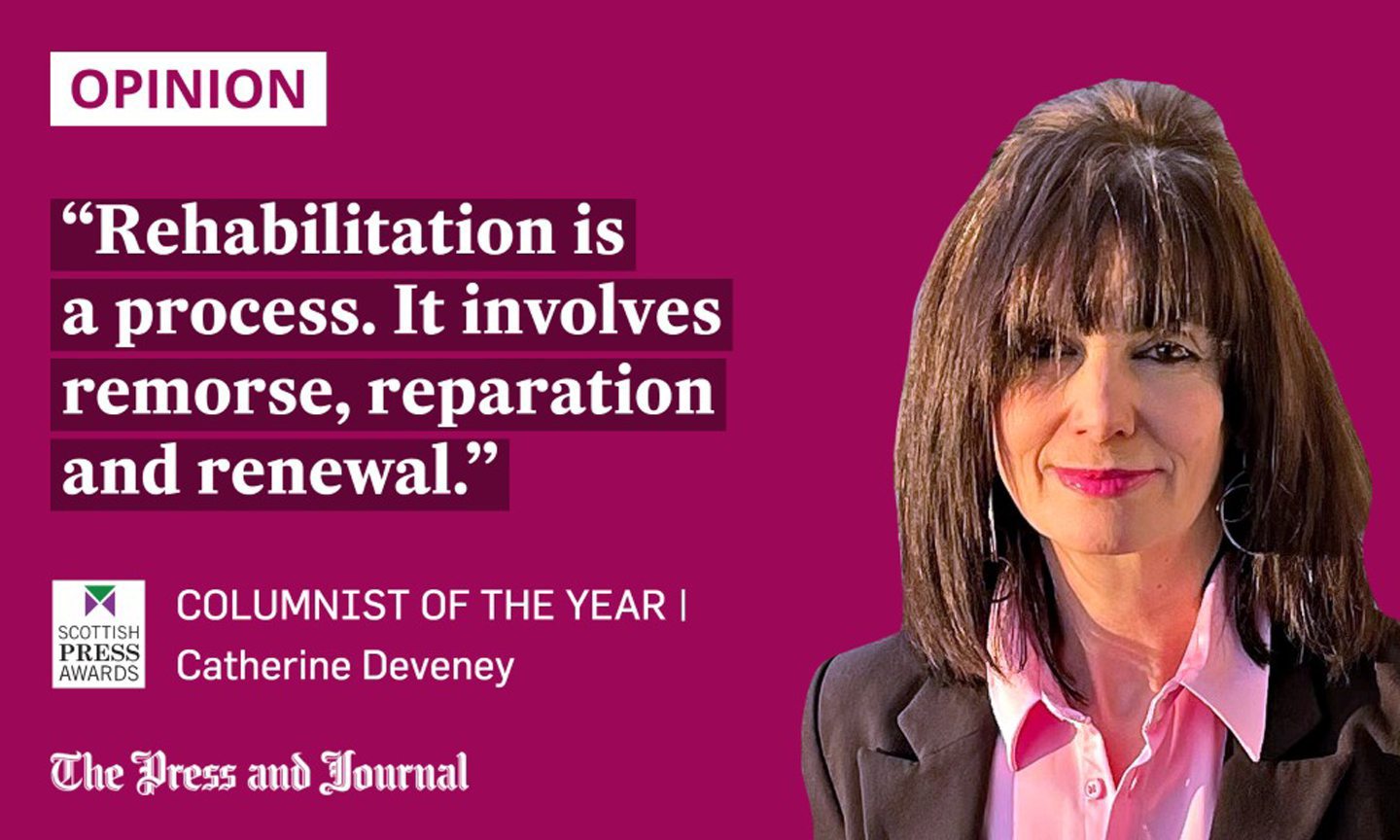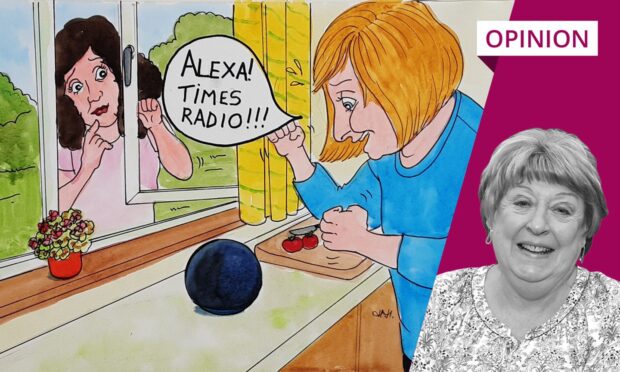A few weeks ago, the New York Times ran a story about a man called Bobby Bostic who, aged 16, had been involved in a series of armed robberies.
Though nobody was injured, Judge Evelyn Baker considered him “a little sociopath” and, in the peculiar tradition of American justice, sentenced him to 241 years imprisonment. End of story, you might think.
Except that Bostic became a studious adult: reading, writing poetry and earning a degree. Baker, meanwhile, changed too. Discovering research suggesting ethical development was incomplete until the age of 25, Baker began advocating for Bostic.
In life, she realised, rehabilitation is real, redemption always possible. When Bostic was released last year, after 27 years, the first person he hugged at the prison gates was the judge who sentenced him.
Bostic’s story became strangely pertinent when reading the Scottish case of 21-year-old Sean Hogg, who was found guilty of raping a 13-year-old girl in Dalkeith Country Park, but spared jail. Instead, Lord Lake sentenced him to 270 hours of community service, a decision that prompted widespread condemnation. “Young Scottish men,” author JK Rowling tweeted, “are effectively being told ‘first time’s free’.”

A comparison of the two tales highlights the true nature of rehabilitation – and all the reasons why the Hogg decision is such a disgraceful distortion of justice.
Hogg was 17 when he offended, and has benefitted from a Scottish Government directive, introduced in January last year, based on essentially the same evidence that swayed Judge Baker. Recognising that teenage brains are not fully formed, the guidelines urged consideration of offenders’ life experiences, and made rehabilitation the priority. But when did “get off scot-free” become a synonym for “rehabilitation”?
Rehabilitation doesn’t happen by osmosis
Rehabilitation is a process. It involves remorse, reparation and renewal. It takes courage, requiring the kind of self-examination and awareness that leads to change and personal growth. It doesn’t happen by osmosis.
For Bostic, it came through study. “Once you make so many mistakes, you get tired, and you want to do something different,” he said. “So, I started reading. That’s how I found myself, in books. And that’s the most peace I ever get in the world. It’s a natural high, basically.”
There are five principles often quoted in connection with the ethics of justice: equality, fairness, proportionality, beneficence and autonomy. Bostic’s case, it could reasonably be argued, failed on proportionality: 27 years was more than necessary for change. But, at least it recognised due process: it was long enough that even his victims supported his release. Hogg’s 13-year-old victim hasn’t had a look-in.
A Black man in Missouri sentenced to 241 years in prison for robberies — at age 16 — has been released after 27 years.
Bobby Bostic's case helped get a law passed granting parole hearings for people incarcerated as minors.
He would have otherwise had to wait until he was 112. pic.twitter.com/RXKpNuz3gz
— AJ+ (@ajplus) November 14, 2022
Yet, Hogg’s life has continued as normal. In the four years since he committed his crime, he has gone on to father two children. He will be on the sex offenders list for a mere three years so that, before he is 25, his slate is wiped entirely clean.
Rape, if committed by an adult over 25, earns a sentence of four or five years, Judge Lake told Hogg. “I don’t consider that appropriate, and don’t intend to send you to prison,” he continued. “You are a first offender with no previous history of prison.”
The state, it seemed, cared enough about Hogg’s development as a young person to offer him an escape route. But what of the abused child he violated? The same state has decided she can be sacrificed on the altar of Hogg’s troubled “development” into adulthood. What are we saying here? Boys will be boys? Girls, just suck it up?
Violence against women is still not properly punished
It’s difficult to imagine how a 13-year-old processes that level of sexual violence and develops normal relationships. A UK Government crime study examined the effects of rape on women over 16; 63% reported mental or emotional problems, and 10% attempted suicide. Yet, it so often feels that crimes involving money – like Bostic’s – are more severely punished than violence against women.
What makes women so angry about all this is that the judicial system already fails to protect them when it comes to sexual crime. In Scotland alone, out of 2,298 reported rapes in 2020-21, only 158 cases were prosecuted, with just 78 secured convictions.
The Sean Hogg case applies the notion of rehabilitation in an inappropriate way that fails the principles of ethical justice
A quarter of Scottish rape and attempted rape trials end in a “not proven” verdict. To have jumped through all those hoops to a conviction but then allow the perpetrator to simply walk away is no form of justice.
The Bostic case is an uplifting reminder that change is always possible. Life without any possibility of redemption would be bleak, indeed.
But the Hogg case applies the notion of rehabilitation in an inappropriate way that fails the principles of ethical justice. It fails on equality. It fails on fairness. It fails on proportionality. Worse, it is also likely to fail on grounds of rehabilitation, because it has not required the perpetrator to do any of the hard work that might precipitate it.
Catherine Deveney is an award-winning investigative journalist, novelist and television presenter, and Scottish Newspaper Columnist of the Year 2022











Conversation